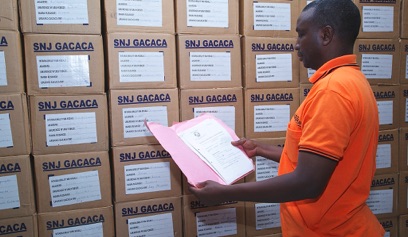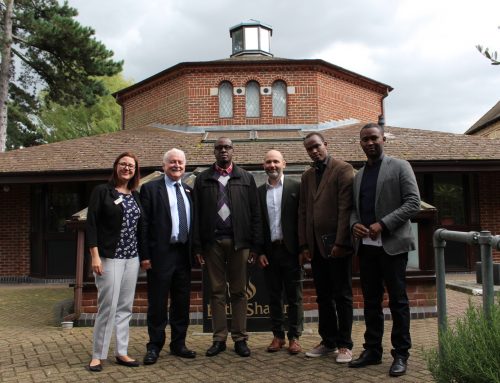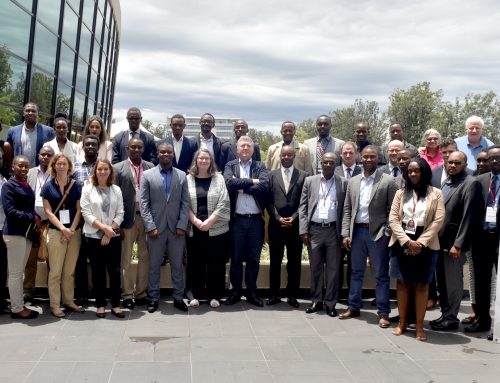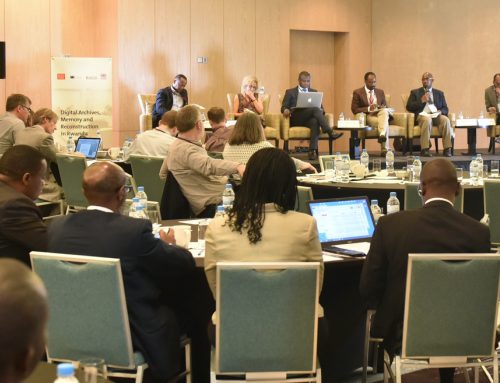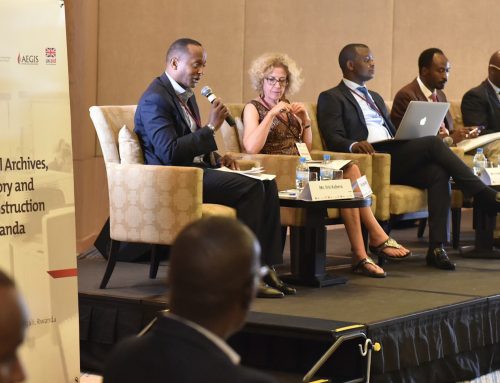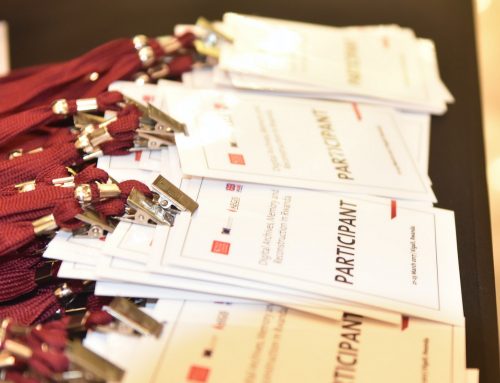At a high level consultation in Kigali, Rwanda’s National Commission for the Fight against Genocide (CNLG) in partnership with Aegis Trust today unveiled a plan to preserve, digitise and make accessible the documents and audiovisual files created through the Gacaca Courts – including 8,000 recordings and an incredible sixty million pages of documentation. The plan is the outcome of 18 months of research and a feasibility study, which assessed the current state of the Gacaca collection and how best to archive it.
Since the Gacaca Courts completed their work in June 2012, significant efforts have been undertaken to preserve and organise the court records. A team including CNLG, the Aegis Trust and its international partners the NIOD Institute for War, Holocaust and Genocide Studies (Netherlands), King’s College London (UK) and USC Shoah Foundation (US) has been working to find a sustainable solution to ensure the archives are preserved for generations to come. The plan to build a world class Gacaca Archive is part of a larger endeavour to make the genocide against the Tutsi one of the most comprehensively documented – and most easily researchable – genocides of all times.
“Gacaca helped to lay the foundation for unity and reconciliation in Rwanda,” says Joseph Habineza, Rwanda’s Minister of Sports and Culture. “By drawing on our culture and tradition, the courts helped bring to light the truth of what happened in 1994 and provided justice for victims and survivors of the Genocide against the Tutsi. Preserving the results of the courts’ work and ensuring people can access them for research and learning is a priority for Government of Rwanda.”
Speaking about the plan to build the Gacaca Archives, the Executive Secretary of the National Commission for the Fight against Genocide, Jean de Dieu Mucyo, said: “The Gacaca records contain testimonies given by victims, witnesses and perpetrators as well as the investigations led by the courts and the decisions taken. This invaluable information helps us to learn about the preparations for the genocide, its implementation and consequences. It also contributes to our understanding how Gacaca helped restore justice in communities traumatised by the horrific crimes committed in the 1994 Genocide against the Tutsi.”
The Gacaca Archives will be a tool for research, learning and preventing mass atrocity. The plan announced today includes hosting the physical archive in a new facility at the Kigali Genocide Memorial to form part of the Global Centre for Humanity, a centre for excellence in genocide research. The feasibility study for its construction has been carried out by a consortium of architects led by John McAslan & Partners, together with MASS Design Group and Landmark Studios.
“The consideration and care for the Gacaca files, and more widely for the genocide archives of Rwanda, is a historical duty,” says said Freddy Mutanguha, Country Director of Aegis Trust. “Preservation ensures that anyone can use the existing material for research and education purposes. It is a legacy for generations to come. The Gacaca Archives will meet international standards thanks to the expertise of trained staff and the exchange of knowledge and practical skill between Rwandans and our international partners.”
As part of the Genocide Archive of Rwanda, the Gacaca Archive will benefit from a modern suite of archival tools, large-scale digitisation and delivery capacity that will allow it to become the World’s largest collection of information on transitional justice.

